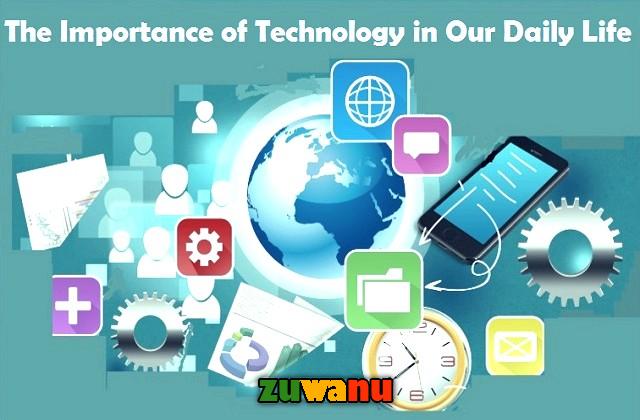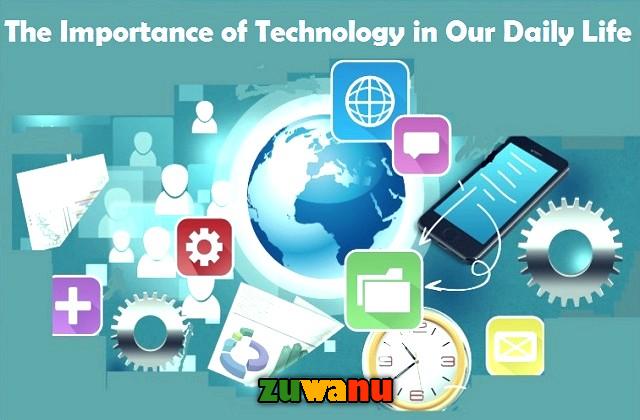The importance of Technology: in Shaping Education, Society, Business, and Entrepreneurship
Table of Contents
importance of Technology in our lives
Introduction

In the 21st century, technology has become an integral part of our lives, permeating every aspect of society. It has not only revolutionized the way we live but has also fundamentally transformed how we learn, communicate, conduct business, and embark on entrepreneurial journeys. In this article, we will explore the multifaceted importance of technology in our lives, focusing on its pivotal role in education, communication, society, and the world of business and entrepreneurship.
Technology in Education
- Enhanced Learning Experiences: One of the most significant impacts of technology on education is the enhancement of learning experiences. Digital tools and platforms have enabled students to access a wealth of information, multimedia resources, and interactive content that can cater to diverse learning styles and needs. Whether it’s through online courses, educational apps, or virtual reality simulations, technology has made learning more engaging and effective.
- Accessibility and Inclusivity: Technology has broken down geographical barriers, making education accessible to individuals around the world. Online courses and e-learning platforms have democratized education, allowing people from diverse backgrounds and locations to pursue their academic and professional goals. Furthermore, technology has empowered students with disabilities by providing adaptive tools and assistive technologies that facilitate learning.
- Personalized Learning: Adaptive learning algorithms and artificial intelligence (AI) have paved the way for personalized education. These technologies analyze students’ learning patterns and preferences, tailoring content and assignments to their individual needs. This not only helps struggling students catch up but also challenges high-achieving students to excel.
- Collaboration and Communication: Technology has fostered collaboration among students, educators, and institutions. Learning management systems (LMS), video conferencing, and collaborative tools enable seamless communication and teamwork, transcending physical boundaries. Students can collaborate on projects, engage in discussions, and seek assistance from teachers and peers regardless of their location.
- Efficiency in Administration: Educational institutions have benefited from technology in administrative tasks. Automation of administrative processes such as admissions, grading, and scheduling has reduced administrative burdens, allowing educators to focus more on teaching and research.
- Global Learning: Technology has enabled global learning experiences, where students can interact with peers and educators from different countries, gaining insights into diverse cultures and perspectives. This global perspective is invaluable in today’s interconnected world.
- Continuous Professional Development: Technology has made it easier for educators to engage in continuous professional development. They can access online courses, webinars, and resources to stay updated with the latest pedagogical methods and subject matter knowledge.
- Data-Driven Insights: Through data analytics, technology helps educators track students’ progress and identify areas where intervention is needed. This data-driven approach allows for early identification of struggling students and provides insights into improving teaching methods.
- Digital Literacy: In an increasingly digital world, digital literacy is essential. Educational institutions are now integrating digital literacy skills into their curriculum to prepare students for the digital workplace. This includes skills like online research, information evaluation, and cybersecurity awareness.
- Preparation for Future Careers: Technology is shaping the future job market. By incorporating technology into education, students are better prepared for careers that require digital skills. This includes fields like programming, data analysis, digital marketing, and artificial intelligence.
Technology and Communication in Society
- Global Connectivity: The importance of technology in communication is undeniable. It has connected people across the globe, breaking down geographical and cultural barriers. Through the internet, social media, and communication apps, individuals can interact with others worldwide in real-time.
- Information Access: Technology has democratized information access. People can now obtain news, research, and knowledge instantly, allowing them to make informed decisions and stay updated on global events.
- Economic and Social Development: Technology plays a crucial role in the economic and social development of nations. It facilitates trade, e-commerce, and digital payments, driving economic growth and financial inclusion.
- Crisis Management: During crises such as natural disasters or pandemics, technology enables rapid communication and coordination of relief efforts. Social media and messaging apps provide real-time updates and connect affected communities with help and resources.
- Political Activism: Technology has empowered political activism and social movements. Social media platforms have become powerful tools for organizing protests, raising awareness about social issues, and advocating for change.
- Cultural Exchange: Technology allows for the exchange of culture and art. Through platforms like YouTube, Netflix, and streaming services, people can access content from around the world, promoting cross-cultural understanding.
- Telemedicine: Especially in the wake of the COVID-19 pandemic, telemedicine has gained prominence. Technology enables remote medical consultations, making healthcare more accessible and convenient.
- Remote Work: The ability to work remotely has become a reality for many, thanks to technology. It has not only provided flexibility but has also reduced commuting and contributed to a more sustainable environment.
- Family and Social Connections: Technology has enabled people to stay connected with family and friends, even when separated by vast distances. Video calls and messaging apps have played a vital role in maintaining social bonds.
- Privacy and Security: As technology advances, so do concerns about privacy and security. Protecting personal information and digital identity has become a critical aspect of modern communication.
Technology in Business and Entrepreneurship
- Efficiency and Productivity: Businesses have leveraged technology to streamline operations, automate repetitive tasks, and boost overall efficiency. This leads to cost savings and increased productivity.
- Market Research and Analytics: Technology provides businesses with powerful tools for market research and data analytics. Companies can gather customer feedback, track trends, and make data-driven decisions to stay competitive.
- E-commerce and Online Sales: The growth of e-commerce has been propelled by technology. Businesses can reach a global customer base, operate 24/7, and offer personalized shopping experiences through online platforms.
- Supply Chain Management: Technology helps businesses optimize their supply chains, reducing delays and minimizing costs. This is especially crucial in industries with complex logistics.
- Customer Relationship Management (CRM): CRM software enables businesses to manage and nurture customer relationships. It allows for personalized communication, targeted marketing, and improved customer service.
- Innovation and Research: Technology fosters innovation by providing tools for research and development. Businesses can experiment with new ideas, develop prototypes, and bring innovative products and services to market.
- Global Reach: Technology breaks down international barriers, allowing businesses to expand globally. With the right digital strategy, even small startups can tap into international markets.
- Cost Reduction: Cloud computing and virtualization have reduced the need for expensive physical infrastructure. This cost reduction benefits businesses of all sizes.
- Agility and Adaptability: In a rapidly changing business landscape, technology helps companies remain agile and adaptable. They can pivot quickly in response to market shifts and customer preferences.
- Entrepreneurship Empowerment: Technology has lowered the barriers to entry for entrepreneurship. Entrepreneurs can launch startups with minimal capital, access global markets, and leverage online resources and tools for growth.
list 10 importance of technology
here are ten important aspects of technology in our modern world:
- Improved Communication: Technology has revolutionized the way we communicate, making it faster and more efficient. From email to instant messaging and video calls, technology has bridged geographical gaps and made global communication seamless.
- Enhanced Education: Technology has transformed the education sector, providing students and educators with access to a wealth of information, interactive learning tools, and online resources, thus improving the quality of education.
- Medical Advancements: Technology has led to significant advancements in the field of medicine, from life-saving equipment to telemedicine, and even the development of new treatment methods like gene therapy and precision medicine.
- Automation and Efficiency: In various industries, technology has led to increased automation, improving efficiency, reducing errors, and increasing productivity. This is especially notable in manufacturing, agriculture, and logistics.
- Global Connectivity: The internet and related technologies have connected the world in unprecedented ways, enabling businesses to operate globally, individuals to communicate worldwide, and information to flow freely.
- Entertainment and Leisure: Technology has brought entertainment to new heights with streaming services, virtual reality, gaming, and immersive experiences, providing a wide range of leisure options for people of all interests.
- Environmental Sustainability: Technology plays a crucial role in developing sustainable solutions to environmental challenges, from renewable energy sources like solar and wind power to efficient waste management and conservation efforts.
- Economic Growth: Technological advancements have contributed significantly to economic growth by creating new industries, generating jobs, and increasing overall productivity.
- Scientific Discovery: Technology has enabled scientists to conduct experiments and research on a scale and precision previously unimaginable, leading to breakthroughs in various fields, including astronomy, physics, and biology.
- Personal Convenience: From smartphones that fit in our pockets to smart home devices that make everyday tasks more convenient, technology has become an integral part of our daily lives, enhancing our comfort and convenience.
These are just a few of the many ways technology has shaped our world and continues to play a crucial role in nearly every aspect of modern life.
Conclusion
Technology has become the cornerstone of modern life, shaping our education, communication, society, and business landscapes. Its importance in education is evident through enhanced learning experiences, personalized education, and global connectivity. In society, technology has fostered global communication, economic development, and social change. In
business and entrepreneurship, it drives efficiency, innovation, and global reach.
As technology continues to evolve, its impact on our lives will only grow. It is crucial for individuals, institutions, and societies to harness the potential of technology while addressing the challenges it presents, such as privacy concerns and digital inequality. Embracing technology wisely and ethically will enable us to unlock its full potential and continue to benefit from its transformative power in the years to come.


Leave a Comment